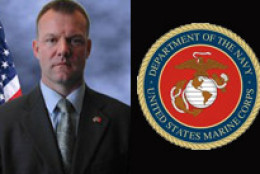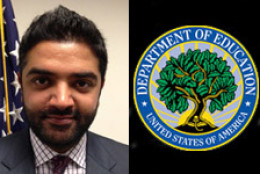Cybersecurity
-
Technology has made it a lot easier for small businesses to function over the past few years. But with that ease comes many cybersecurity concerns.
March 17, 2014 -
Gen. Keith Alexander, who will soon retire as the first commander of U.S. Cyber Command, said his organization has matured to the point that it should join the club of unified commands that report directly to the President.
March 14, 2014 -
A higher slot on the military's organizational chart for U.S. Cyber Command.
March 13, 2014 -
Rob Anderson, the chief of the Vision and Strategy Division in the Marine Corps Command, Control, Communication and Computers (C4) office, said reducing the monthly data and voice fees for even 50 percent of the current employees using BlackBerrys could mean as much as $5 million that the Marines could transfer to readiness and operations and maintenance accounts. March 13, 2014
March 13, 2014 -
PwC has released a new survey that indicates, cybercrime is the second most common type of fraud reported by financial firms, more than double the level across other industries. According to the report, 39 percent of financial services companies that suffered from economic crime last year said they had been hit by cybercrime, compared to 17 percent in other industries.
March 10, 2014 -
There's some new spyware that's been infecting hundreds of government computers in Europe and the United States. Several security researchers and Western intelligence officers, according to Reuters believe the malware, called Turla, is from the Russian government. They also think it's inked to the same software used in a U.S. military breach in 2008.
March 10, 2014 -
Steve Grewal, the chief information security officer for the Department of Education, joins Federal News Radio for an online chat. View the archived chat now.
March 06, 2014 -
The Education Department's new security operations center reached initial operations capability in 2013 featuring six tools to improve the protection of its network and data. Steve Grewal, Education's chief information security officer, said a move to cloud and mobile computing requires the agency to have more visibility and accountability into how vendors protect its network. March 6, 2014
March 04, 2014 -
Chinese President Xi Jinping, according to the Associated Press, "has put himself in charge of a new body to coordinate cyber security, in a sign of Beijing's concern over its vulnerability to online attacks and its desire to retain tight control over the Internet." AP says Chinese state media reports the central Internet security and information leading group will draft policy for boosting the country's defenses, as well as expanding and improving Internet access.
March 03, 2014 -
The Mt. Gox bitcoin exchange in Tokyo filed for bankruptcy protection Friday and its chief executive said 850,000 bitcoins, worth several hundred million dollars, are unaccounted for. The exchange's CEO Mark Karpeles appeared before Japanese TV news cameras, bowing deeply. He said a weakness in the exchange's systems was behind a massive loss of the virtual currency involving 750,000 bitcoins from users and 100,000 of the company's own bitcoins. That would amount to about $425 million.
March 03, 2014 -
In this week's edition of Inside the Reporter's Notebook: Another senior technology official at DHS is on the move; HUD quietly extended the HITS contracts to Lockheed Martin and HP Enterprise Services; Defense CIO Teri Takai doesn't have a lot of good things to say about the Federal Information Technology Acquisition Reform Act and a new DHS office will raise the level of focus on critical infrastructure security.
February 28, 2014 -
Agencies must use only cloud services that have been approved under the Federal Risk Authorization and Management Program (FedRAMP) by June. OMB will receive more details on agency progress with the latest quarterly update through PortfolioStat. Meanwhile, FedRAMP's security baseline will be revised this summer.
February 28, 2014 -
Randy Wood, federal vice president of F5 Networks will discuss how Software Defined Application Services or SDAS, can benefit your agency. February 25, 2014
February 25, 2014 -
Navy Cyber Forces, already headquartered in Suffolk, Va., will take over responsibility for building the knowledge workforce the Navy terms the "information dominance corps."
February 24, 2014 -
Departments have a week to finalize their plans to implement information security continuous monitoring by 2017. State and DHS already are heading down the new cyber path, and are excited to take advantage of the standard suite of products and services under the CDM contract.
February 21, 2014






